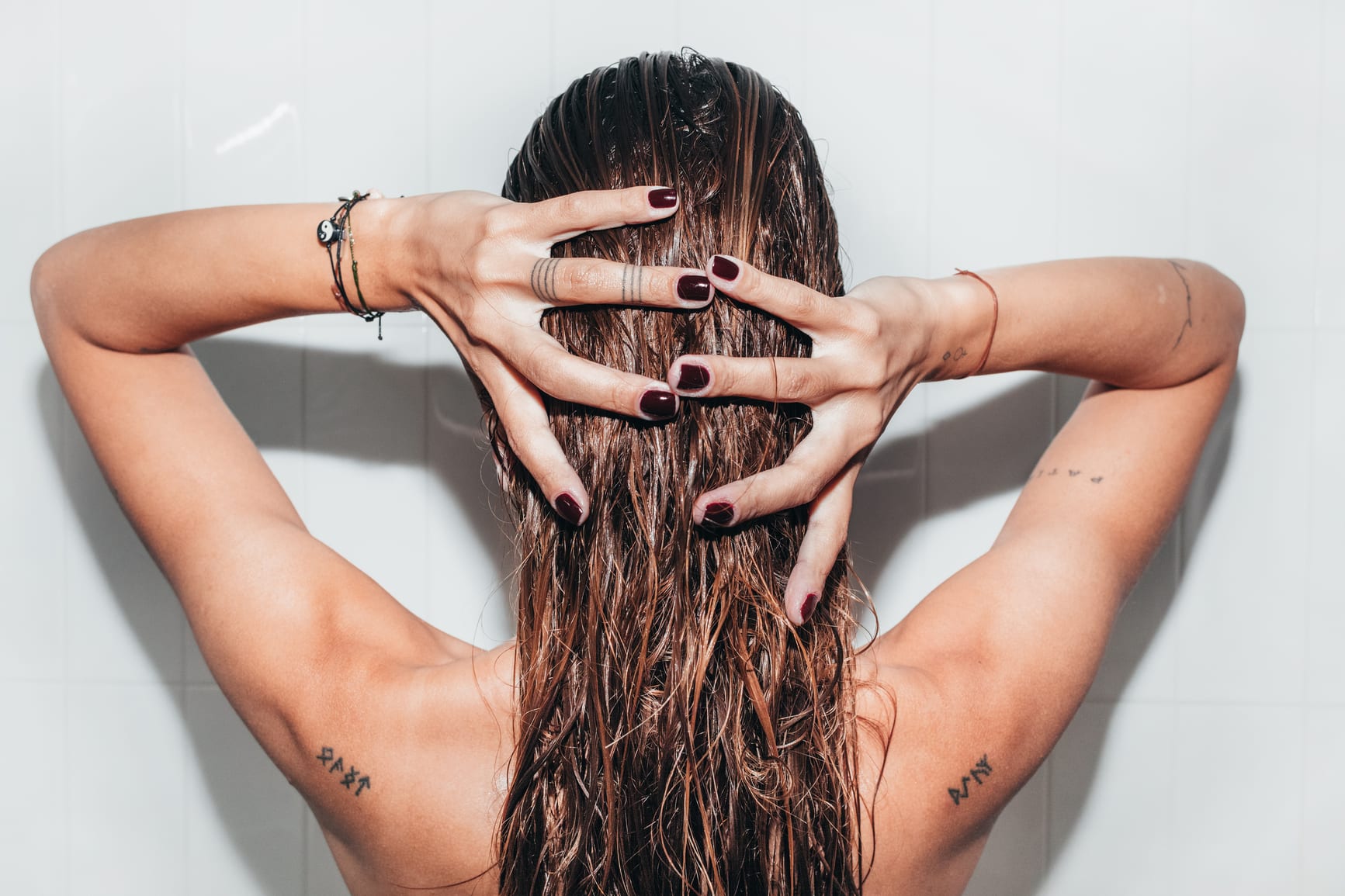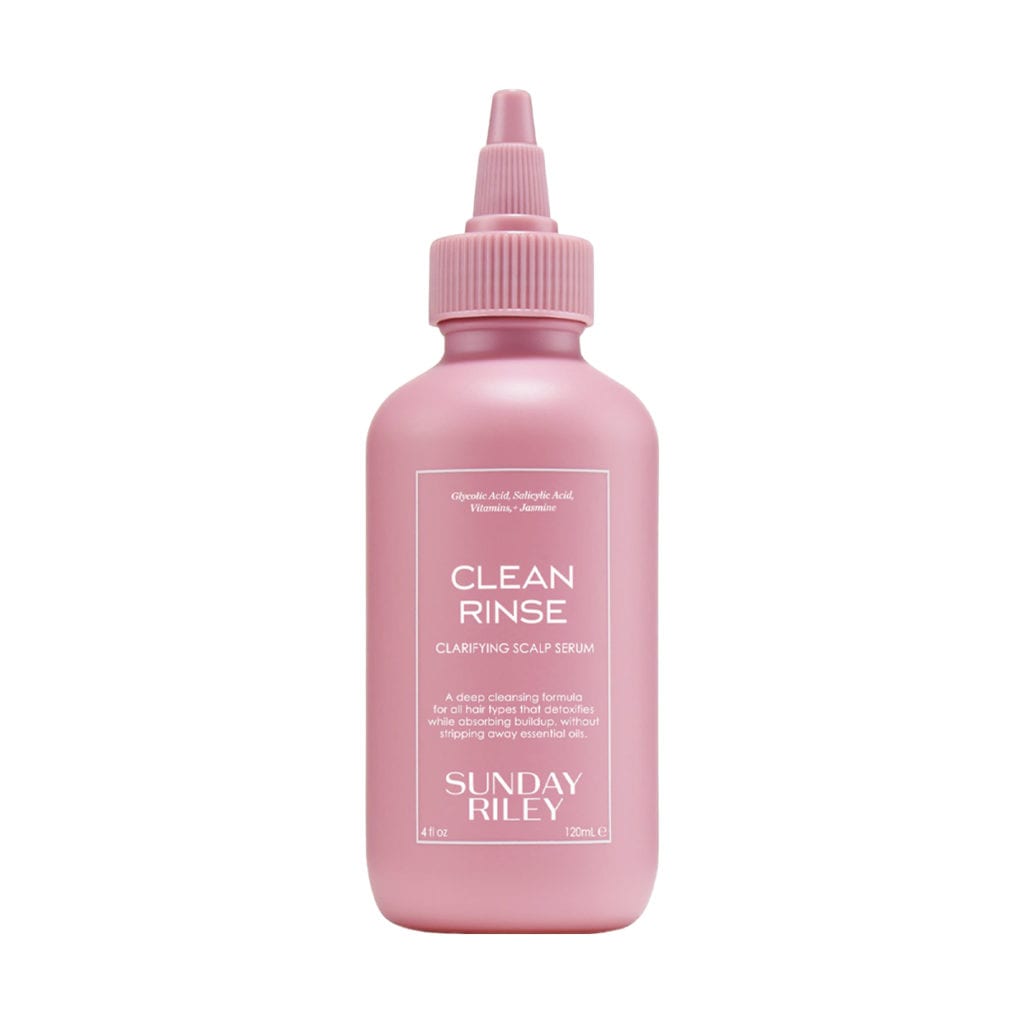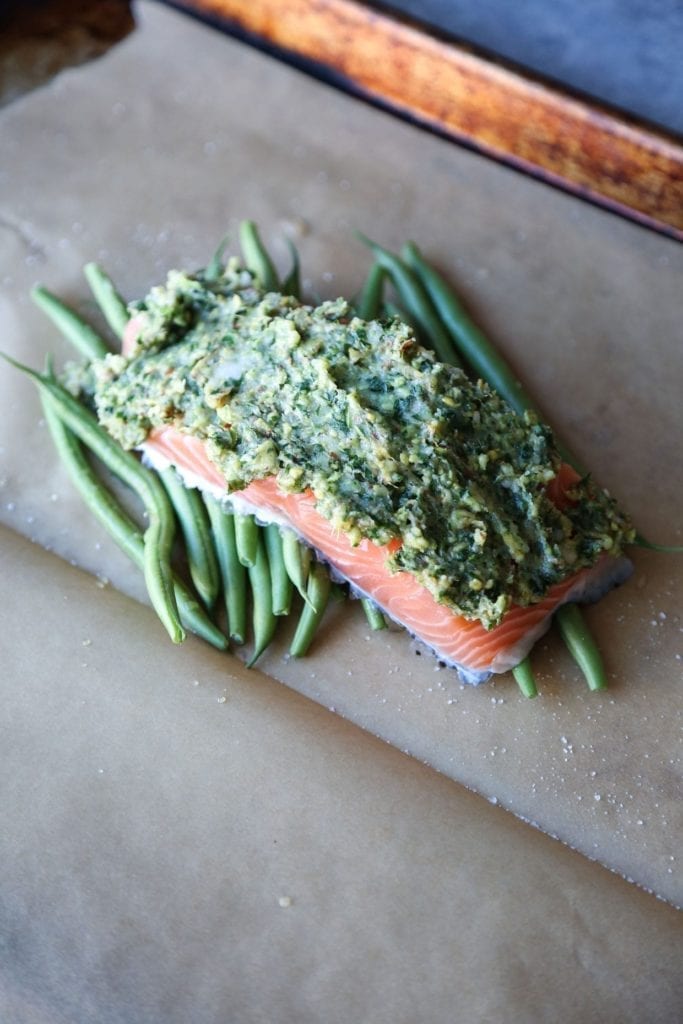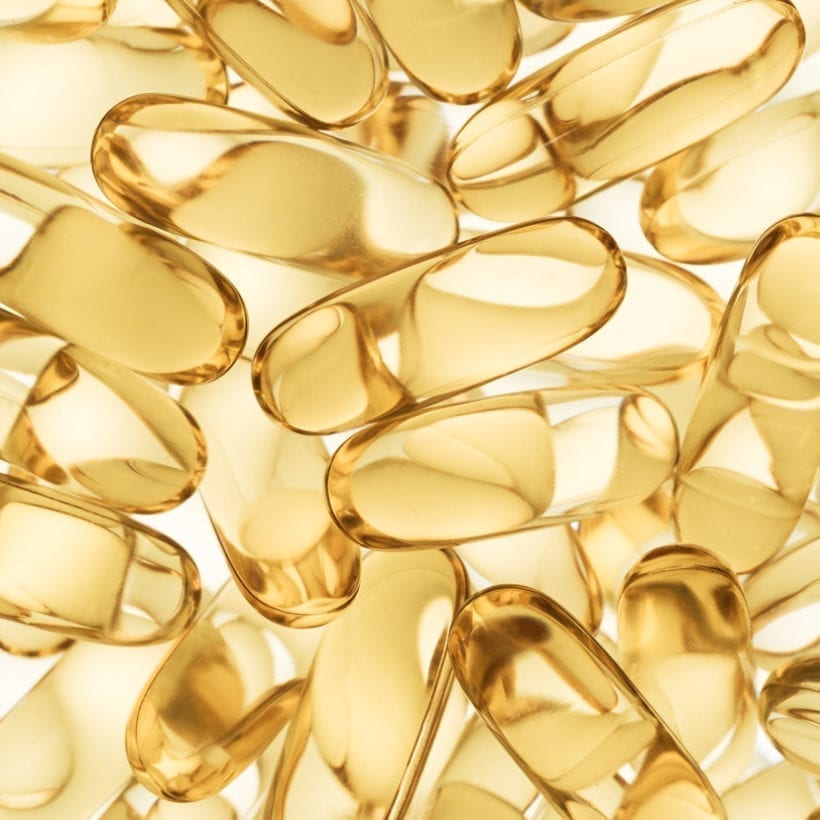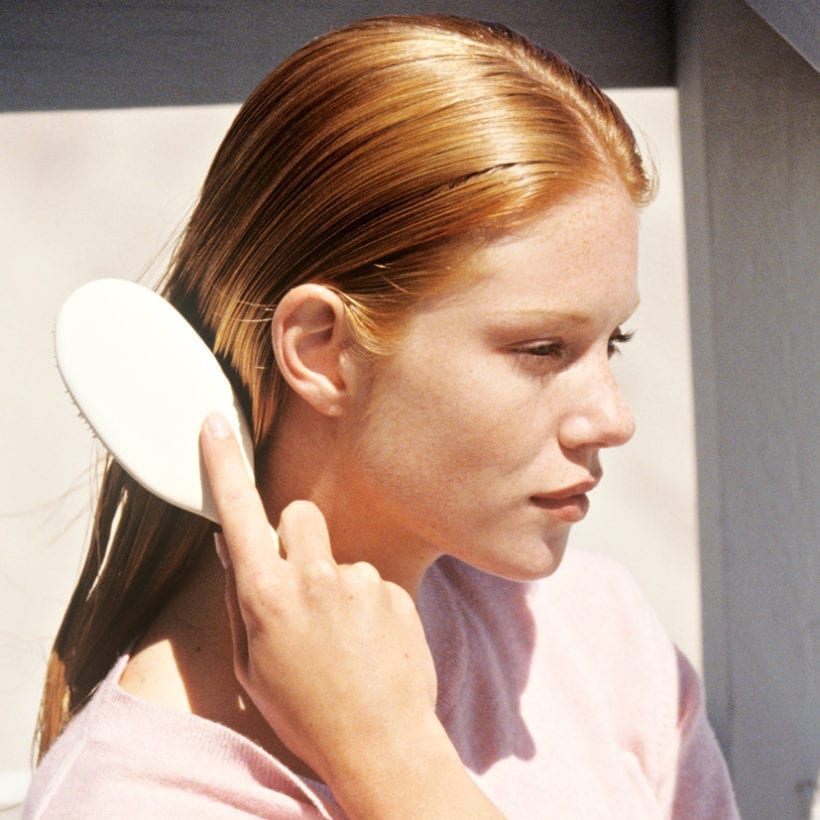When it comes to styling your hair, dirty hair trumps clean. It curls better, it slicks better, it volumizes better. There are even dry shampoos and texturizing sprays that purposely recreate that second- or third-day hair look on freshly washed hair.
So some might think that dirty hair makes it also grow faster, but that’s not exactly the case. “A clean scalp is a healthy scalp and that allows for ideal hair growth conditions,” explains David Adams, consultant trichologist for Thicker Fuller Hair. “Hair needs to be cleansed on a regular basis to allow for hair growth,” he adds, noting that the product buildup prominent in dirty hair can wreak havoc on any hair growth efforts. “There are normally two to three hairs growing out of each follicle and, when there is buildup, it causes miniaturization which means the follicle becomes smaller, which is attributed to thinning hair,” he says.
How Often Should You Shampoo For Healthy Hair?
But does this mean you have to wash your hair every day to make your hair grow? There isn’t a universal rule that works on everyone. Mostly, it depends on your hair texture and type, as well as how often (and how much) you use hair products. “When washing your hair, do what works best for you and your normal hair care routine,” says Adams.
There’s a misconception that washing your hair every day can dry out your scalp. But for some people, the scalp should be treated with the same daily care and attentiveness as the rest of your skin: “We wash our face and bodies every day — it’s perfectly fine to wash our hair and cleanse our scalp every day,” says Adams.

If you have oily, straight hair, you might find you’re in the camp that benefits from a daily rinse. If you typically have dry hair, your hair may dry out from daily shampoos and then cause breakage. That’s partially why people might think dirty hair contributes to good hair health.
On the other hand, say you have dry, curly hair. You could wash your hair weekly and it could still grow healthily. You just don’t want to go weeks and weeks without it ever getting a rinse. “Your washing routine does not negatively impact your hair growth,” says Kathy Yates, a trichologist, beauty expert, and founder of Colour Collective.
What Are Traditional Shampoo Alternatives?
“Washing it more does not cause your hair to grow less,” says Yates, noting that washing your hair less could lead to follicle damage, not the other way around. “A build-up of sebum and/or styling products can clog your hair follicles, leading to follicle damage and ultimately hair loss,” she adds.
If you’re worried about overwashing, but still love the feel of freshly washed hair, consider your sulfate-free options (they won’t suds up — meaning they won’t strip the natural oils from your scalp):
- A scalp exfoliator: “Excess debris can lead to itching, which is abrasive to the scalp and hair follicles.” So, much like our complexions, regular exfoliation is also beneficial for preferred scalp environment and hair growth. A scalp scrub is definitely recommended at least once a week to exfoliate your scalp to avoid clogged follicles. Sunday Riley Clean Rinse Clarifying Scalp Serum uses a mix of glycolic and salicylic acid to dissolve dead skin and oil buildup while moisturizing your hair. You keep it on for at least three minutes (up to 30) and rinse out.
- A co-wash: When co-washing, you’re using solely conditioner as your in-shower hair routine. However, you still apply your co-wash as you would a shampoo — using your fingertips to thoroughly massage it into your scalp (you need that friction from your fingers to remove any dirt and buildup). Then, you rinse thoroughly for several minutes before washing it out. You could totally choose any conditioner you please, but there are certain co-washes that might do a better job at lifting grime off your scalp as opposed to just moisturizing it.
How Can You Speed Up Hair Growth?
Now that you’ve created a healthy, clean environment for your hair to grow, can you actually speed up the process? According to the American Academy of Dermatology, hair usually grows about 1/2 inch per month (aka six inches a year) and healthy hair growth largely depends on your age, how healthy you are and your hair type. There are a few lifestyle factors can contribute to the lack of hair growth:
- Think about your diet: Ever notice how your skin looks healthier when you eat a more balanced diet (and when you don’t, it’s breakout central)? “By ‘feeding’ your scalp the right diet of nutrients, your scalp pores are clear and ready to foster thick, full, healthy-looking hair,” says Adams. Omega-3 fatty acids (salmon’s a great source), biotin-rich foods like eggs and healthy, essential fats (think: avocados) are linked to healthy hair growth.

- Consider supplements: While supplements alone don’t mean you can eat whatever you want, you can find many of those good-for-you ingredients in pill or powder form (like fish oil, iron, zinc or biotin pills) for those days that are hard to eat right. “If you are vitamin deficient, then taking vitamins and supplements [recommended by a doctor] will help you achieve a more active growing cycle,” says Yates.
- Read your haircare labels: Apply nourishing ingredients that are thought to encourage hair growth (like peppermint essential oil) topically with your shampoos and conditioners.
- Talk to your doctor about hormone imbalances: Hormone imbalances are one of the top reasons for hair loss. Sometimes it’s a temporary situation (like in the case of pregnancy) and you may just need to wait it out. Other times, there are prescriptions your doctor might recommend.
- Take a look at your existing medications: The good news is that hair loss from a medicine that you’re taking is usually temporary and will grow back when you stop that particular medication. There are a lot of prescriptions and over-the-counter products out there that claim to (temporarily) grow your hair, but that’s a conversation best left between you and your doctor.
- Give yourself a scalp massage: “You can massage your scalp to improve blood circulation and stimulate your hair follicles,” says Adams. However, this practice “is not really a matter of speeding up hair growth so much as extending your hair growth cycle — the longer your hair stays on your head, the longer in length your hair will be from month to month,” adds Yates.
Additional reporting by Jessie Quinn.
